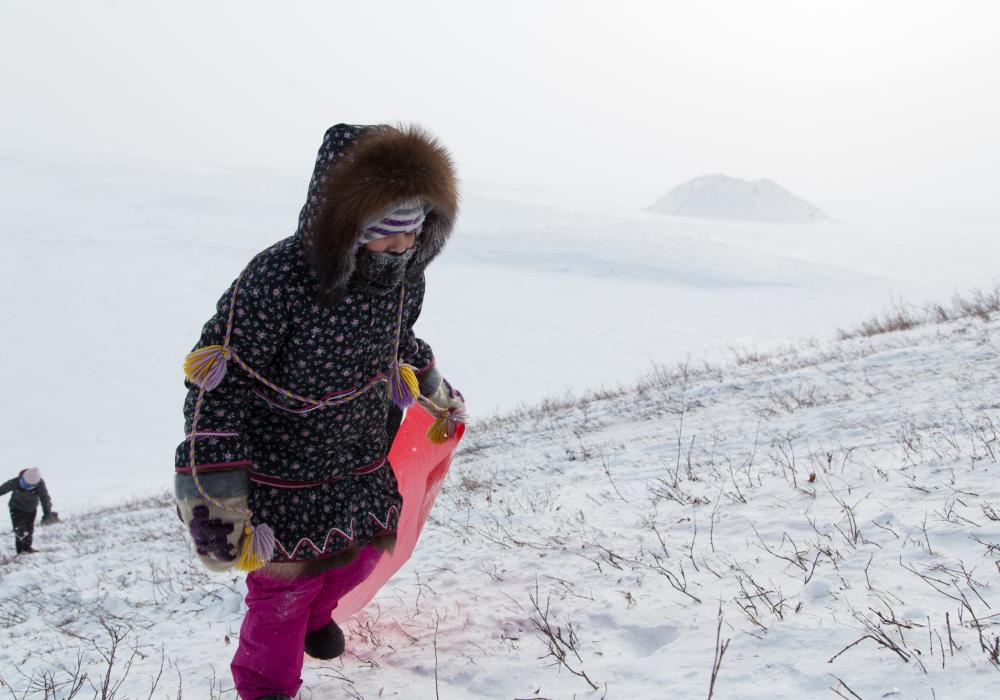New Inuvialuit Settlement Region Climate Change Strategy lays out impacts on the environment and detailed plan for action
The Inuvialuit Regional Corporation has released its Climate Change Strategy summarizing a wide range of environmental impacts facing the Inuvialuit Settlement Region and providing its plan for community focused policy actions.
The ISR Climate Change Strategy, released today, includes planned policy actions across six thematic areas: Food Security Wellness; Safety; Housing and Infrastructure; Education and Awareness; Ecosystem Sustainability; and Energy.
“The natural environment is extremely important to Inuvialuit identity and overall wellness, and both the observed and anticipated effects of climate change on the ISR are key concerns for our Beneficiaries,” said Duane Smith, IRC Chair and CEO. “To address those concerns, the ISR Climate Change Strategy describes a wide range of impacts that an increasingly warmer and wetter climate will bring to the ISR and our multifaceted course of action toward climate change mitigation, adaptation and resilience.”
In developing climate change solutions for the ISR, IRC is committed to bridging Inuvialuit Traditional Knowledge and Western science, an approach that is emphasized throughout the strategy. Inuvialuit organizations and beneficiaries, including youth and Elders, will continually be engaged in the implementation of the Strategy’s actions.
The ISR Climate Change Strategy was informed by Inuvialuit engagement activities that began in 2016 with the development of the Inuvialuit on the Frontline of Climate Change Report. Special acknowledgement goes to the members of Inuvialuit Co-managementbodies, Community Corporations, Elders Committees, Huntersand Trappers Committees and the Regional Youth Advisory Group,amongst others.
IRC’s Innovation, Inuvialuit Science and Climate Change (IISCC) department is tasked with maintaining the Strategy and ensuring that it reflects the evolving priorities of Inuvialuit communities and the latest climate change projections for the region. IISCC will also work with partner organizations and governments, including the Government of Canada, Inuit Tapiriit Kanatami, and the Government of Northwest Territories, to leverage synergies with other existing climate change strategies and plans at the pan-Inuit, territorial and national levels.
The full strategy can be downloaded here.
For more information, please contact the Innovation, Inuvialuit Science, and Climate Change Department, Roxanne Springer, Climate Change Program Coordinator at 867-777-7052 or rspringer@inuvialuit.com.
For media inquiries, contact: Communications, Elizabeth Kolb 867-678-0540 and comms@inuvialuit.com
Download the Full Press Release
About the Inuvialuit Regional Corporation
Established in 1984 to manage the settlement outlined in the Inuvialuit Final Agreement (IFA), Inuvialuit Regional Corporation (IRC) represents the collective interests of Inuvialuit in and beyond the Inuvialuit Settlement Region. The IRC works to continually improve the economic, social and cultural well-being of the Inuvialuit through implementation of the IFA and by all other available means.
